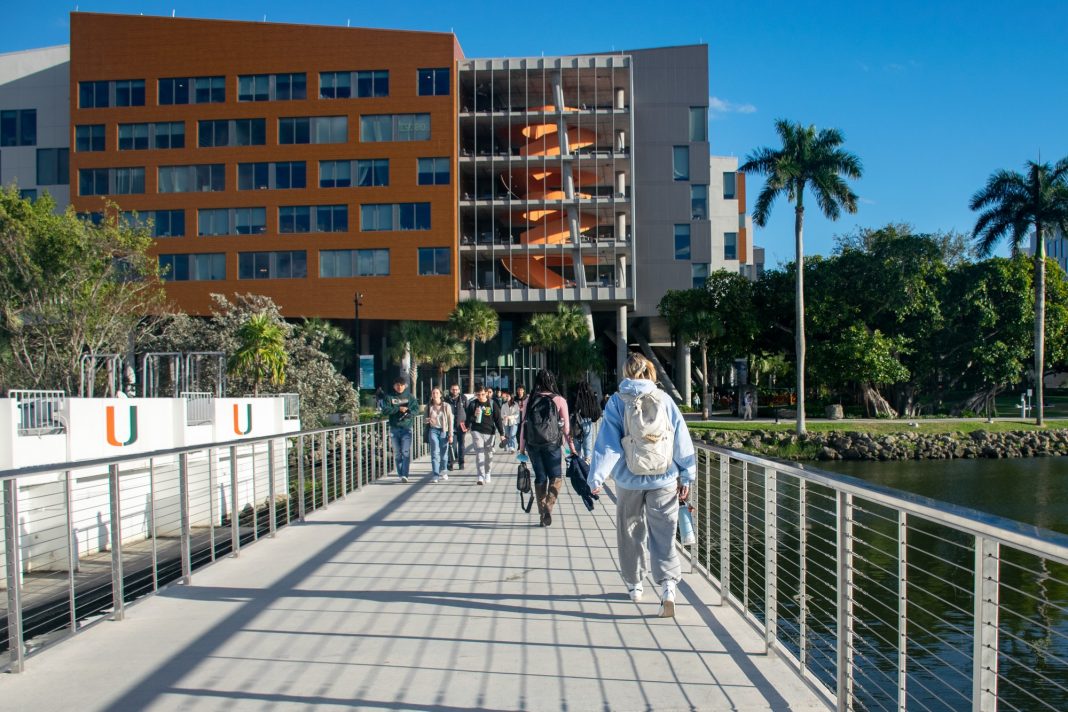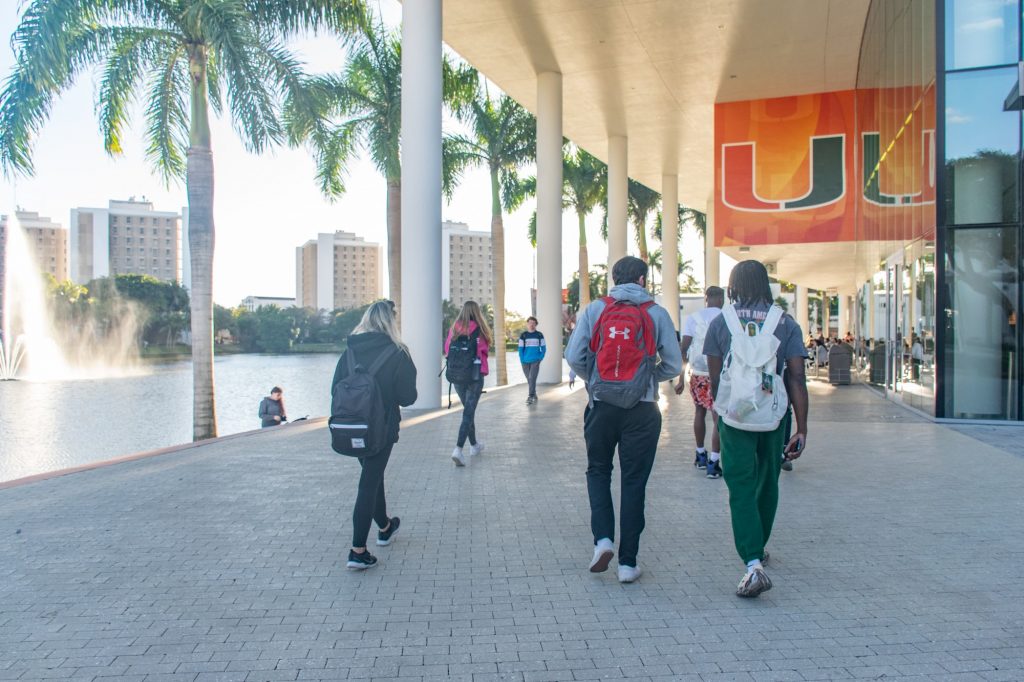
When the University of Miami first announced it was moving the first two weeks of spring semester classes online, many students decided to postpone their return until in-person classes resume despite on-campus housing opening on Jan. 18 as scheduled. Those that stayed home, however, generally did so for reasons unrelated to their worries about the COVID-19 pandemic.

“I chose to stay home because none of my roommates were going back and I didn’t really want to go back and be alone,” said Luca Bocseri, a senior majoring in economics and finance.
Bocseri and many of his peers claim that most students who chose to stay home during remote classes did so for family reasons.
“I kind of opted into staying at home and maximizing the time I had with my family,” Bocseri said.
Alison Humphries, a senior majoring in psychology and sociology, took the delayed reopening as an opportunity to spend a few extra days with those she loves most.
“I’m very family-oriented and I have my dogs at home, so I’d like to spend as much time with them as I can before going back to school,” Humphries said.
Some students decided to remain home due to their reluctance to take remote classes on campus.
“I had my entire high school senior year on Zoom, and now returning to it reminds me why I didn’t like it,” said Roy Carillo Zamora, a freshman majoring in legal studies and economics. “I feel remote learning takes away a vital part of learning, and that is the interaction with classmates before, during, and after classes.”
Missing from these students’ explanations of their decisions to remain off-campus during remote classes is any mention of pandemic-related anxiety. Bocseri says that many students do not believe that the switch to remote learning will have any effect on a potential Omicron spike.
“I question if the University’s policies are really going to have any effect on whether or not there is going to be a spike on campus,” Bosceri said. “I think that’s more so going to follow the general COVID-19 situation within the area of Miami-Dade in general.”
One reason for students’ diminished anxiety about the pandemic is the fact that the majority of the student body has been fully vaccinated against the virus.
“I have the two vaccines and my booster, so I wasn’t too scared of COVID-19,” Humphries said.
However, public health officials at the University insist that students must continue to take safety precautions even with the lower risk of serious illness brought on by the Omicron variant.
“Don’t make the mistake of not respecting Omicron,” said Dr. Emilio Volz, director of the Student Health Service on campus.
Volz states that the decision to hold the first two weeks of classes online and to allow students to return to campus of their own accord has significantly impacted cases of the virus on campus.
“You can see by looking at the colleges that have shut down after starting live classes,” Volz said. “It was absolutely the right move. We’re starting at a much better place.”






